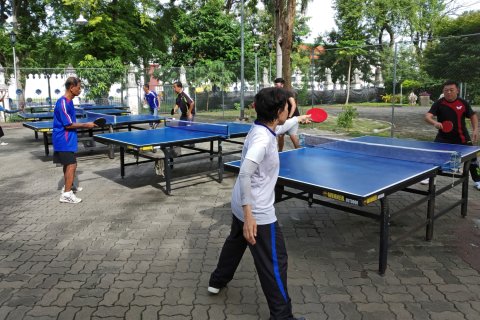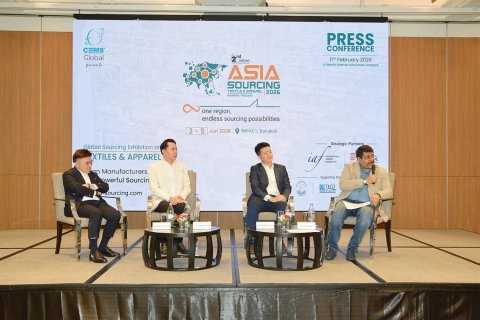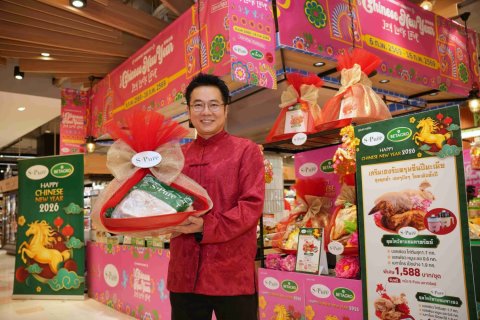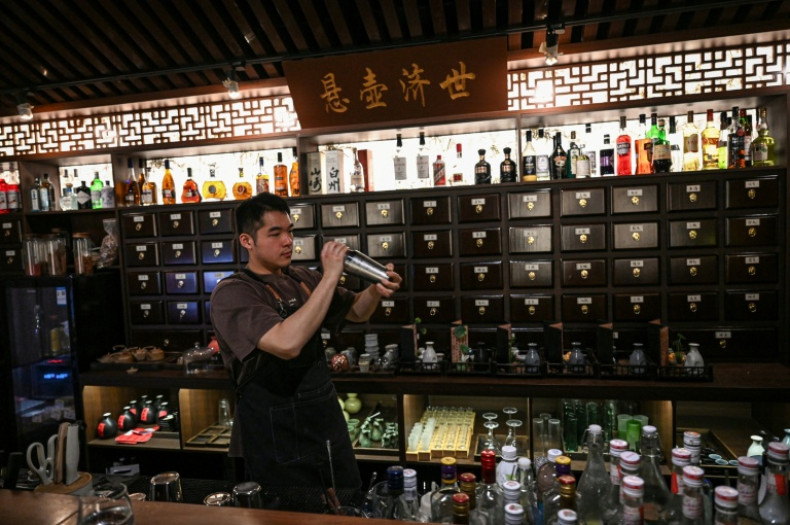Showing 1 - 10 of 10,000
Asian shares retreat ahead of Lunar New Year break
Business, Published on 14/02/2026
» RECAP: Asian equities pulled back from record highs on Friday as traders locked in gains and pared positions ahead of a week-long holiday in Chinese markets. Wall Street risk appetite ebbed as traders started to look at AI-related impacts on the broader economy.
Big C allots B8bn for new branches
Business, Somhatai Mosika, Published on 14/02/2026
» Big C Supercenter Plc plans to invest up to 8 billion baht for new branch openings and the renovation of outlets across Thailand.
Tobacco Authority of Thailand targets B1.2bn in export revenue
Business, Wichit Chantanusornsiri, Published on 14/02/2026
» The Tobacco Authority of Thailand aims to boost exports this year, aiming to raise its cigarette export revenue to 1.2 billion baht, up from 800 million baht in 2025.
Rama VI Road declared smoke-free
News, Apinya Wipatayotin, Published on 14/02/2026
» The Bangkok Metropolitan Administration (BMA) has declared Rama VI Road a smoke-free area as part of its push to promote a "Healthy City" environment.
Thailand to host Asia’s premier Textile & Apparel Sourcing event
Published on 13/02/2026
» BANGKOK – The global textile and apparel industry will converge in the heart of Asia as the 2nd Asia Sourcing Show 2026 (Textiles & Apparel) and the Global Sourcing Summit 2026 take centre stage from 3–5 June 2026 at the IMPACT Exhibition & Convention Center in Bangkok. The dual events position Thailand as a powerful gateway for global sourcing, industry dialogue and cross-border collaboration.
Guru's Weekly Buzz: Feb 13-19
Guru, Nianne-Lynn Hendricks, Published on 13/02/2026
» Guru By Bangkok Post's weekly pick of the most exciting products, activities, food and travel to indulge in.
S-Pure Launches “Maha Heng Set” to Celebrate and Bring Year-Round Good Fortune
Published on 13/02/2026
» Betagro Public Company (BTG), Thailand’s leading integrated food company, led by Boonchai Pluemsuebkul, Acting Chief Operating Officer, and Piraphol Srivaleesumphant, Assistant Managing Director – Retail Sales, celebrates the Chinese New Year of the Fire Horse by launching the “Maha Heng Set”, curated from its S-Pure and Betagro brands. The festive set features premium pork, chicken, fresh eggs and processed foods, offering assured freshness, hygiene, and safety. S-Pure products are produced using 100% natural farming practices without antibiotics and certified under the 3S Japan Quality Standard – Safe, Super Food, and Superior Taste, while Betagro products meet high-quality standards through rigorously controlled, internationally certified production processes, ensuring they are free from antibiotics, chemical residues, growth enhancers and hormones.
Singapore plans regulation for blind boxes over gambling risks
Published on 13/02/2026
» As mania about “mystery” shopping sweeps through the world, Singapore is moving to tackle gambling risks raised by products which conceal their specific contents from shoppers.
'Punk wellness': China's stressed youth mix traditional medicine and cocktails
AFP, Published on 13/02/2026
» SHANGHAI — In a softly lit Shanghai bar, graduate student Helen Zhao stretched out both wrists to have her pulse taken -- the first step to ordering the house special, a bespoke "health" cocktail based on traditional Chinese medicine.
IT prices soar from rising memory costs
Business, Suchit Leesa-nguansuk, Published on 13/02/2026
» The prices of computers and some IT products have skyrocketed as a result of rising rates for memory chips in the global market.













